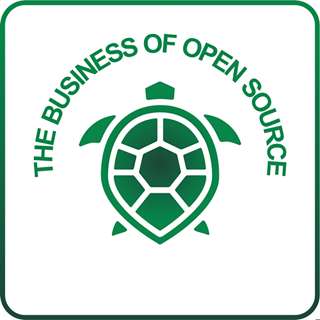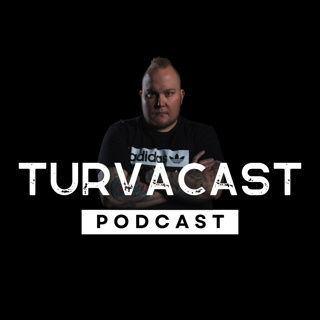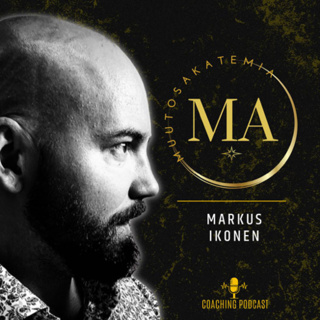
Getting Your Pricing Model Right-ish with Alex Olivier
In the second episode that I recorded on-site at KubeCon EU in Paris, I spoke with Alex Olivier, CPO and co-founder of Cerbos. This was not a general discussion: It was focused on the process that Cerbos went through to figure out pricing. Here’s what we talked about:The first step of figuring out your pricing is not the number, but rather what you’re charging for. Is it API calls, or amount of data you’re processing, or monthly active users, or monthly active principles… that last one is what Cerbos is charging forWhy it’s important to have a pricing system that allows potential users to be able to roughly estimate for themselves how much using your software is going to cost themYou also want to avoid pricing models that encourage people to look for ways to hack around to find ways to lower their monthly costsWhy your pricing model should be about the value you’re providing, not about how much it costs you to run your systemDiscovering what your price anchors are / what your customers are comparing you toCheck out the full episode for more details! And join us at Open Source Founders Summit for more discussions about the specifics of pricing for open source companies.
10 Huhti 202425min

Nailing Customer Acquisition with Patrick Backman of MariaDB and OpenOcean
This week, I had a dilemma: should I prioritize the episode where I spoke with one of the MariaDB co-founders, in which we discuss setting up a foundation as a way to ensure that the project continues to be open source in the future, no matter what (relevant given the Redis announcement); or should I prioritize the conversation with one of the founders of Sonatype, one of the oldest companies in the software supply chain security space, in which we talk about the xz debacle. I went with Patrick Backman, general partner at OpenOcean and co-founder of MariaDB, because it’s a little more in my lane. (The conversation with Brian Fox will have to wait for next week!). One of the main things we discussed was the relationship between the MariaDB foundation and the MariaDB company. Including: Why they decided to put MariaDB open source in a foundation, and why they created a separate foundation instead of putting it in an existing foundation The relationship between MariaDB foundation and company today, including the financial relationshipMariaDB was founded by the founders (and some key employees) at MySQL; we also discussed the lessons learned at MySQL that the team then applied at MariaDB. And we talked about customer acquisition, one of the things that Patrick thinks the team had learned at MySQL and therefore had pretty well figured it out at MariaDB. Patrick’s co-founder Monty Widenius is one of the speakers at Open Source Founders Summit — if you want to go into more details on with the lessons from MySQL and MariaDB, as well as lessons from being an investor at OpenOcean, join us in Paris May 27th and 28th at Open source Founders Summit.
3 Huhti 202436min

Ensuring a Project's Long-Term Survival with William Morgan
This week on The Business of Open Source, I have an episode recorded on site at KubeCon EU in Paris with William Morgan, CEO of Buoyant. We had a fabulous conversation, which touched on some touchy subjects, including Buoyant’s slightly changing relationship with Linkerd. But we talked about:Being an open source mercenary, but also being dedicated to making Linkerd a ‘proper’ open source projectFeeling like open source was table stakes for a company in the space Buoyant plays in. This is an under-appreciated reason for being an open source company — you feel like it’s just expected in the market you play in, so you do. Waiting too long (or is it too long?) to commercializeStarting out by selling support, but the problem with that because Linkerd worked well and people kept saying that they didn’t need support because they never had problemsCompeting against Istio, which was backed by the Google engine and how that made Linkerd / Buoyant an underdog (or cockroach). For those of you who haven’t been following Linkerd / Buoyant… Buoyant recently announced that they would be doing edge releases for Linkerd, but not stable releases. We talked about why they made this change and how the ecosystem responded. Check out the full episode!
27 Maalis 202435min

From Project to Profit with Heather Meeker
This week on The Business of Open Source I talked to Heather Meeker, General Partner of OSS Capital and author of From Project to Profit, How to Build a Business around your Open Source Project. We talked about some things that I entirely agree with, and then there were some points I challenged Heather on — all in all, it was fabulous conversation. Here’s what we covered:Why you should think of your project and product as two different products so you avoid thinking of your open source project as a loss leader and get your incentives rightThe differences between supplementary and complementary products, and how the relationship between project and product is often complementary, even in situations where that relationship is non-obviousWe disagreed about pricing — should COSS businesses have cheaper products than closed-source companies? Why cares about your being open source? Are open source companies more capital efficient? Heather says so, but I’m not convinced. Heather also talked about how they select companies to invest inDo open source companies by definition do a better job at paying attention to user / customer demand? Check out the episode, and check out more about Heather Meeker here: Personal websiteOSS CapitalLinkedIn
20 Maalis 202437min

Delivering Value Quickly in the Observability Space with Pranay Prateek
This week on The Business of Open Source I spoke with Pranay Prateek, co-founder of SigNoz. Pranay talked about why open source is important to SigNoz's business, why it's super important to deliver value quickly, even for an observability product, and why founders shouldn't think of open source just as a distribution model. We also covered: How SigNoz is differentiated in the crowded observability marketWhy Pranay thinks being open source makes it much easier for developers to play around with the project and get to know it; so for them it made intuitive sense that the company that they’d build an open source company Why Pranay also thinks open source enables much deeper integrations, which is critically important for an observability company like SigNozHow one of their first lessons / mistakes was releasing an open source project that didn’t work well on an individual developer’s laptop, because it used too much resourcesThe GTM market, and the challenge delivering value within 30 minutes of trying out the project/product for an observability tool that provides maximum value during an incident — but no one is going to be trying out a new tool during an incident situation Why their first commercial product was a cloud offeringAnd much more! And if you’re interested in more discussions of open source businesses, make sure to join us at Open Source Founders Summit this May.
13 Maalis 202439min

OSFS Special Episode: Being a Strategic Acquisition Target as an OSS Company with Thomas Di Giacomo
In this special episode to promote Open Source Founders Summit, I went deep with Thomas di Giacomo about how open source companies can position themselves as attractive acquisition targets for strategic buyers. If you are the founder of an open source company and you have the idea of being acquired even in the back of your mind, this is a must-listen episode. Whether or not you plan to join us May 27th and 28th in Paris, though of course we hope you do join us. By the way, at OSFS Thomas is going to lead a workshop on the topic of being an acquisition target for open source companies. It will be interactive, which means you can ASK QUESTIONS. In this podcast episode, he talked about: Exits 101. You probably know that strategic buyers usually pay more for companies than other types of acquirers, but we talked about different exit strategies and what they entailWhy strategic buyers acquire businesses (in general) but also why you, as the business seller, need to understand every specific potential acquirer’s story and goals so you can see how your company fits into their strategic planStrategic acquisitions are about 1+1=3… so you have to know what your buyer’s “3” isWhy it’s important to be self-aware and know your own goals before you sign any acquisition paperworkAnd tons more… If you want the chance to ask Thomas about strategic acquisitions for OSS companies — as well as to talk about sales strategies, lead generation and more — join us at OSFS 24 in Paris this May 27th and 28th. —> Get your invite here. PS the audio was a little quiet, but so if you’re having trouble hearing turn up the volume, it’s worth it.
12 Maalis 202432min

Buyer-Based Open Core with Zach Wasserman
This week on The Business of Open Source, I spoke with Zach Wasserman, co-founder and CTO of Fleet. This was a fabulous episode for many reasons, but then again I never do crappy episodes, right? The first thing I wanted to call your attention to is that Zach talked about how he’s building an open core business because building an open source business is what he wants to do. When his previous company turned away from open source, Zach left to do consulting around OSquery and Fleet (the project). I always like to talk about how companies / founders need a solid reason for building an open source company… and “this is the kind of company I want to build” is a very good reason. (“Everyone else is doing it” on the other hand, is not a good reason). Everyone puts constraints around the type of company the want to build, and as long as you are intentionally about the decisions, there is nothing wrong about this, business-wise.Second, we talked about the tension that exists between making a great project and still leaving room for a commercial product that people will pay for, and Zach talked through how Fleet uses a buyer-based open core strategy to decide which functionality to put in the enterprise version or in the open core. We also talked about:Leaving his first company, Kolide, when the founders had divergent visions about where the company should goHow his investor arranged a ‘co-founder marriage’ for Zach and his co-founder Mike McNeilHow the transparency aspect of open source can be extremely important, especially for anything in the security spaceLastly, Fleet happens to be a former client of mine. You can check out what Mike, Zach’s co-founder, said about working with me here. And if you’re interested in more conversations like this… but in person!!! you should come to Open Source Founders Summit May 27th and 28th in Paris.
6 Maalis 202437min

The Evolving Relationship between Apache Cassandra and DataStax
Slightly different The Business of Open Source episode today! I spoke with Patrick McFadin and Mick Semb Wever about the relationship between Apache Cassandra and DataStax — how it was at the beginning and how the relationship has evolved over the years. We talked about:— How there was a dynamic around Cassandra where many of the many of the contributors ended up being sucked into the DataStax orbit, simply because it allowed those contributors to work on on Cassandra full-time— How there can be tensions between different stakeholders simply because everyone involved ultimately has their own interests at heart, and those interests are not always aligned. — How it is actually hard to really have open discussions about new features, and how often there can be a new feature dropped in a project that clearly had been developed behind closed doors for some time, and sometimes that created tension in the community— Some open source projects are just too complex to be hobby projects — Cassandra is so complex that you won’t become a code contributor unless you’re working full-time on Cassandra, because that’s the level of skill you need to keep up. — How the relationship between a company and a project often changes as the technology matures. — The importance of addressing tensions between company and community head-on, as adults, when they occur — as well as why you need to remember to treat people as humans and remember that they have good days, bad days, goals and interests. Patrick on LinkedInMick on LinkedIn
28 Helmi 202440min





















